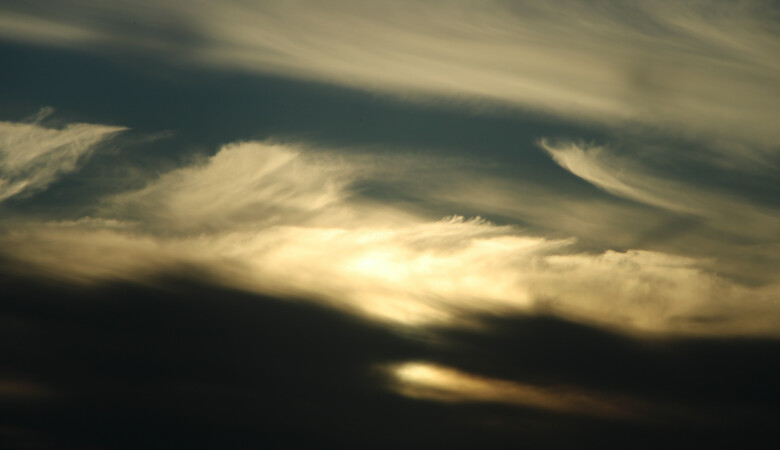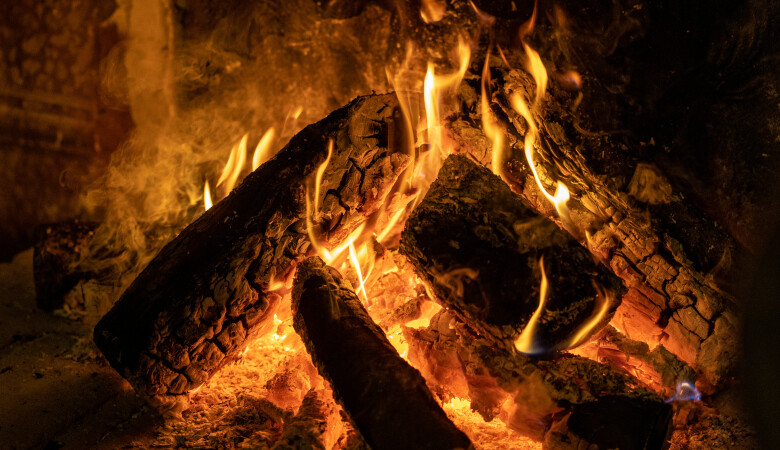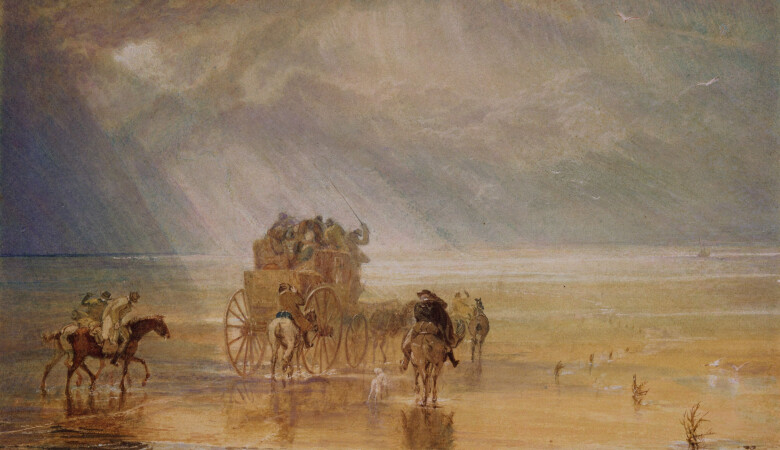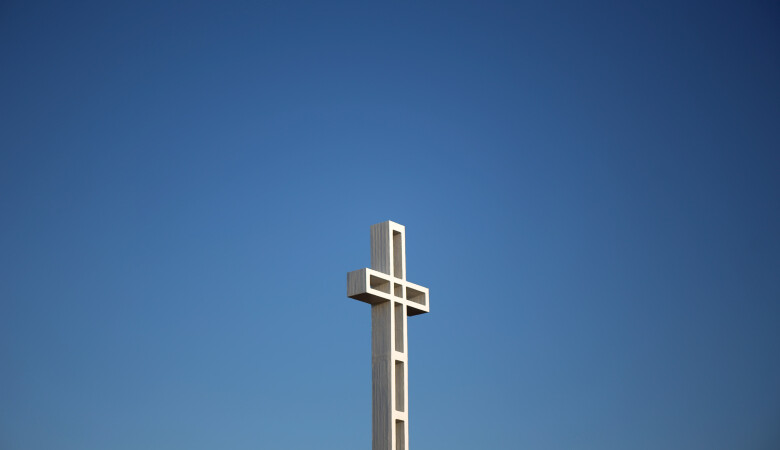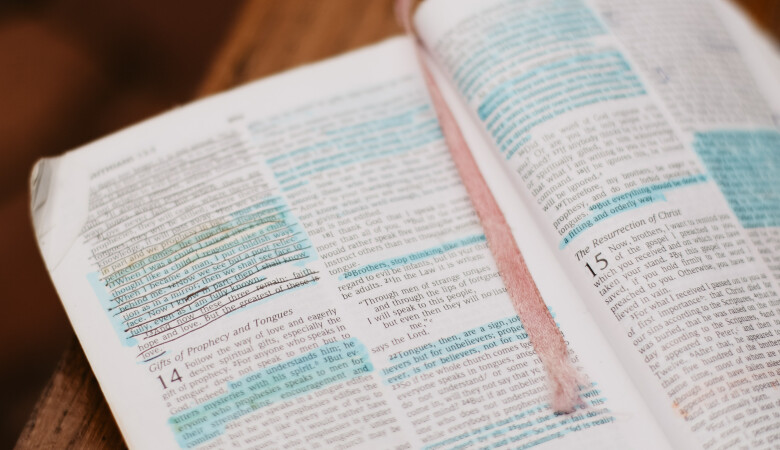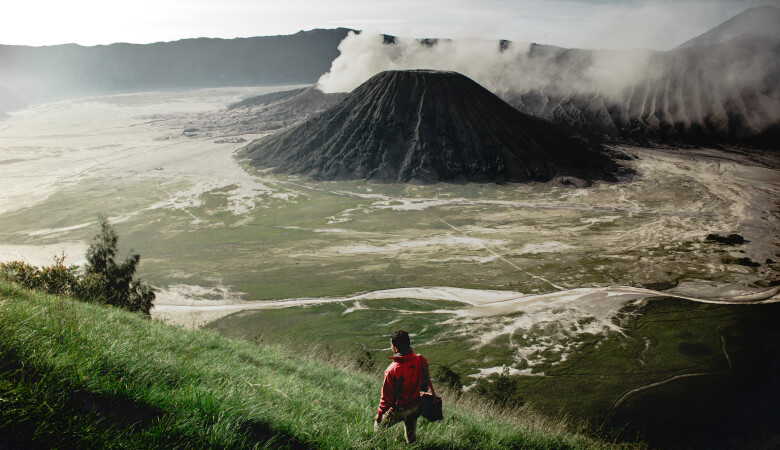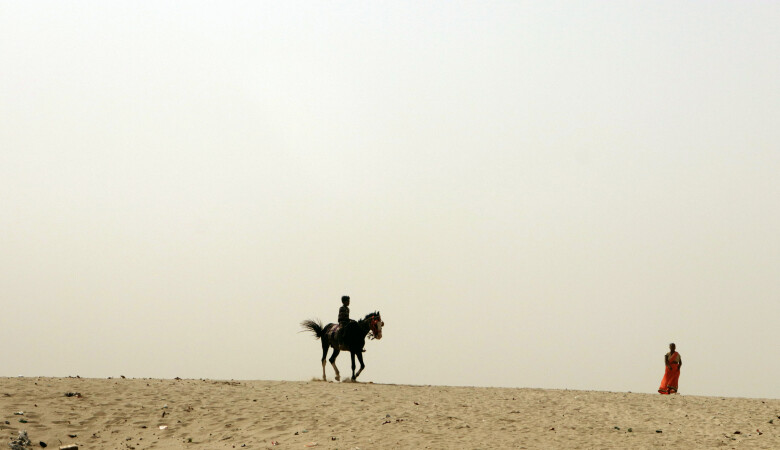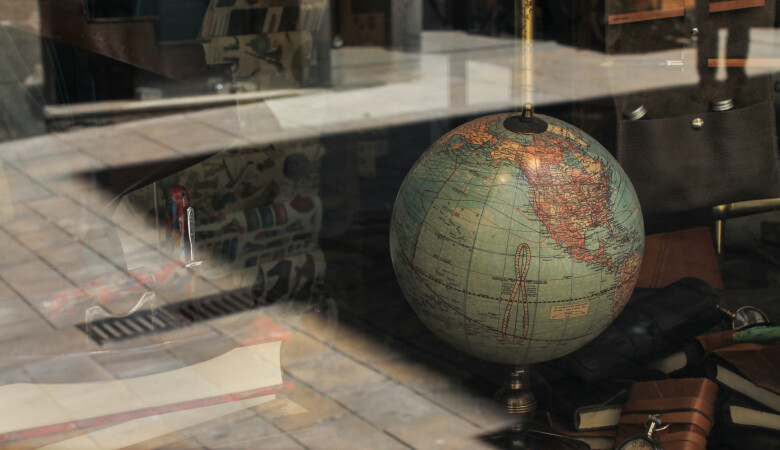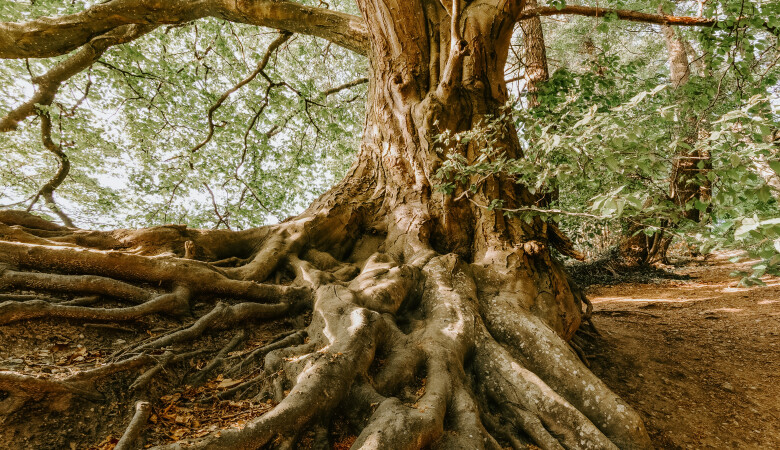Glory to God, the Creator
May 02, 2004 | Andy Davis
Psalms 104:1-35
Providence and Sovereignty of God
Andy Davis preaches a verse-by-verse expository sermon on Psalm 104. The main subject of the sermon is the glory God possesses as our creator.
- SERMON TRANSCRIPT -
I. Meditating on God: Mutual Delight
Turn in your Bibles, if you would, to Psalm 104. We finished our series in Philippians, and God willing, in a few weeks, we'll resume a series I began a number of years ago in the book of Genesis. But I thought I'd take a few weeks and just preach on a few Psalms, to take an opportunity to meditate on God in each of those Psalms. We're going to begin with Psalm 104. I look at Psalm 104 as a great meditation on the glory of God the creator. It's just my task to stand before you and exalt all the verses of Psalm 104 and the truth of God, the creator behind each one. Look with me right at verse 34. Verse 34 says what I want to do with you today in this time of preaching, it says there, “May my meditation be pleasing to him as I rejoice in the Lord.” That's our goal. Let's let our meditation be pleasing to the Lord as we rejoice in Him. Meditation is deep thinking over something, chewing it over, mulling it over, feeling the sweetness and the delicious-ness of the idea, letting the concept fill the mouth of your mind as it were, so that you can savor the truth.
I think that we are in too much of a rush to do it much these days, and I think we suffer greatly, as a result that we don't take the time to meditate on the word of God. But in Verse 34, it says, “May my meditation, be pleasing to him as I rejoice in the Lord.” It's interesting that the verse can be translated to two ways. You may have the King James Version in front of you today, and it would say, “My meditation of him shall be sweet.” The word “sweet” is wonderful, delicious, pleasing, enticing. What could be sweeter and more pleasing and more enticing than meditating on God? Most of the other translations go a different way, “May my meditation be pleasing to Him.” So there's pleasure on both sides, heaven on earth. God pleased at last, perhaps for the first time for you this week, with what it is you're thinking about, I hope not, but that you can meditate deeply on something and God is pleased with you as you do it. Meanwhile, you yourself find the pleasure of the topic, the meditation on God to be pleasing and sweet to you, and so there's a two-way pleasure this morning as we meditate on God Himself, on God the Creator. May our meditation of Him be sweet to us, and may it be pleasing to God, Amen.
As we meditate on God, there are three different broad categories of things that we can meditate on. We can meditate on His nature and His attributes. What kind of God is he? Secondly, we can meditate on His past actions, things He's done in the past, including creation and redemption. Thirdly, we can meditate on His future promises. What He said He will do in the future. All three are sweet, are they not? We could spend the whole time meditating on the nature of our God, on His holiness and His sovereignty and His power, and His compassion and His mercy, all of those attributes. We could meditate on those, we could meditate on God's future promises, what He is yet to do and bringing about a new heavens and a new Earth, and that would be sweet too, wouldn't it? We will touch on it a little this morning, but we're going to focus on the second kind of meditation. We're going to meditate on His past and present actions, what God has done and what He is doing now, specifically as God, the Creator.
Now, I believe that God created us to wonder at Him and to be amazed at Him, and woe to us if we lose our ability to be in awe of anything, that we're so jaded and so hard and cold that nothing ever amazes us; the slogan of that is, “Been there, done that.” Oh, we're the losers if we come at life that way. May our meditation of God be focused on Him, and may we be amazed, and may it be marvelous, that is filled with marvel, and may it be wonderful, that is filled with wonder at what God has done.
God created us, specially in His image, with the capacity to see Him and His handy work behind the physical creation. John Calvin called the physical creation, the theater of God's glory. We could stand in physical creation, we can just behold His glory. God wove His glory into every single living thing, every animal and every fish, and every bird, and every blade of grass, every tree. His glory is woven in there, but as we've commented before, the other physical created beings cannot see God's handy work in it. That's our job. We were created that we may know His glory and that we may marvel in Him, the creator of it. “The earth will be filled with the knowledge of the glory of the Lord as the waters cover the sea.” So as we learn the Scriptures, and as the Spirit transforms us by the blood of Christ, and we come out of that darkness that sin produces, we can see God behind each of the created things in the world, and He gets the glory, and we praise Him for it, and we can say, “This is my Father's world.” We walk through it, and it's an act of worship, even on a rainy Sunday, and praise God for it. So we are pleased, we’re filled with pleasure. God is pleased in our meditation when at last the two come together, we are created beings but created in His image to see His handy work. We are pleased to do it, and God at last is pleased with our meditation.
II. God the Creator and Re-Creator
So let's do that together. Our focus here in Psalm 104 is God the Creator. And if you were to look through the Psalm and keep in mind the six days of creation, what God did in day one, what he did in day two and day three, four, five, and six, you're going to see each one of them reflected somewhat in a broad view in Psalm 104. For example, God created light; He said, “Let there be light.” If you look at at Verse 2, it says there, he wraps himself in light as with a garment. The second day, God separated the waters above from the waters below. It says again, “He stretches out the heavens like a tent,” in verse 2. In the second half of verse 2, he lays his beams on the upper chambers, on the waters, and he makes the clouds his chair, those are the waters above, and then the waters below.
On day three, in verses 5-9, the water is separated from the land and vegetation from the trees. In verses 14-17, The fourth day, God created time keeping lights in heavens to keep the days and the seasons and the years, the sun and the moon and the stars in verses 19-23. The fifth day, God created creatures of sea and of the air, and we see that reflected in verses 25 and 26 with Leviathan, the great creature of the sea. Then day six, God created animals and man, and those are represented in verses 21-24, and then 27-30.
So we see the six days of creation, that's really the structure of the meditation here in Psalm 104, God the Creator, day one, day two, three, four, five, and six, the six days of creation. The Psalmist is meditating on that and thinking about it, we're really just following his meditation on creation. But it's not just the original creation in the first six days, but God's ongoing providential care for His creation. He hasn't just left it alone but He continues to care for it, continues to rule over it like a king, providing for each of its needs, and so frankly, most of the psalm doesn't talk about so much what God did in the past, but what God is doing now, today, with his physical creation, how He sustains it, and how He provides for it, and how He meets the need of every living creature, how He opens up His hand and sustains the needs of every living being.
God provides daily. We're looking back in time at the six days of creation, but looking today at how God, in an ongoing way, continues to sustain and to provide for His physical creation. We also see His recreating work, His upholding and sustaining work in the Psalm. Look at verse 30, the psalm there speaks poetically about God's sustaining work in creation, when He sends His Spirit, He is renewing the face of the earth. Do you see that? God sends forth His spirit and it becomes spring as it were. Spring doesn't just happen, not in the biblical view. Spring is created by God; we're not just running under blind laws of evolution, but God sent forth His Spirit and His work is being re-created. See what I'm saying, the New Testament, therefore, openly speaks of a sustaining work of God. God didn't just create it, He spoke it into existence, and that was sufficient. Now, it must be sustained and upheld every moment by His creative word, and so we are totally dependent on God, whether we acknowledge it or not. Moment by moment, we're dependent on Him. So it says in Hebrews 1:3, “The Son [speaking of Jesus], is the radiance of God's glory, and the exact representation of His being, sustaining all things by His powerful word.” Did you hear that? He sustains it, He upholds it moment by moment, by His powerful Word. He sends forth His word and guess what, you get to keep existing, you get to keep existing because He sends forth the word. Colossians 1:17, “He is before all things, and in Him all things hold together.” Jesus is the Sustainer, the Creator and the Sustainer. So in Psalm 104, again, we're looking in a broad view right now, speaks of God as the original creator, but also as the sustainer, re-creator, upholder moment by moment of physical creation.
We also see that God directly rules over every aspect of his physical creation, everything's touched on really in Psalm 104. We see Him ruling over weather, the clouds and the wind. We see Him ruling over the Earth in Verse 5, over oceans in verses 6-9, ruling over mountains and valleys in verse 8, ruling over thirsty wild donkeys in verse 11. when was the last time you gave a thirsty wild donkey a single thought? But God sustains them and cares for them at every moment; thirsty cedars as well, in verse 16, lofty cedars of Lebanon and storks, which nest in high branches, in verse 17, mountain goats and rock badgers, and the hyrax, we will come back to him later. In verse 18, the sun and the moon, in verses 19, prowling lions, massive whales, both of them are hungry and He feeds them. That's what it says in verses 21, 25 and 26. Then man tills the ground and his heart is gladdened and his face shines with what God provides. So big picture, you can see God, the Creator, the Provider, the Sustainer.
III. The Whole Earth is Full of His Glory
Now, let's look a little more in detail at this Psalm. I've broken it into little nine subsections of what the Psalm says about God. First is God's glory in self-revelation. By this, I mean light, God said, “Let there be light,” and there was light, and the Psalmist talks about it. God's greatness is the theme of Psalm 104 in general, but we also see the personal relationship to God. He speaks of “my God,” and he begins by talking about light. Look at verse 2-3, “O Lord, my God, You are very great.” You see, “O Lord, my God,” the psalmist says; “He's my God, the God who made all that, He's my God.” “Oh Lord, my God, You are very great, You are clothed with splendor and in majesty.” He wraps himself in light as with a garment. Now, all of the meditation that we're going to be doing in Psalm 104, how much of it could we not enjoy if God had never created light, if the universe were drenched in darkness, so much of this would be lost to us, but God created light that we might see the shimmering light on a bay, like the Chesapeake Bay if you ever see it at sunrise.It just shimmers and is so beautiful. Or the lights as it catches an eagle as it sores up on a thermal up over a cliff. You can see it by light, can't you. Or the beauty of your spouse's face, as you see that, the light reflecting and you look at the features, or of your child.
You know God created light so that we could see Him, yet interestingly, God also conceals Himself by light. “Immortal, invisible God only wise in light; inaccessible hid from our eyes. Most blessed, most glorious, the Ancient of Days, Almighty victorious, Thy great name, we praise. Great Father of glory, pure Father of Light, Thine angels adore Thee, all veiling their sight, all praise we would render; O help us to see 'Tis only the splendour of light hideth Thee.”
So God's light reveals Himself, but it also conceals Himself too, and why? Because He is far above His physical creation. We see attributes in His creation, but we don't see Him there. That's the Judea Christian view, that God is not the creation. It's not Pantheism here, but He is high above it, and so we must live by faith and not by sight, but what we see helps our faith, doesn't it? We cannot survive by the way, a full revelation of God's glory. Could you stand it if God were to fully reveal Himself to you today? 1st Timothy 6 says, no, you couldn't. It says, “God the blessed and only Ruler, the King of kings and Lord of lords, who alone is immortal and who lives in unapproachable light, whom no one has seen or can see. To Him be glory and honor, and might forever and ever, Amen.” Just like God said to Moses, “You cannot see my face, for no one may see Me and live.” So God begins by creating light, and light both reveals and conceals God. Jesus Christ, as we studied in Sunday school today, is the light of the world [John 8:12], and He reveals the nature of God. When we look at Him, we can see the Father. “Anyone who has seen me has seen the Father,” Jesus said. We look at Him and we can see God.
Secondly, we see God's glory in immensity, the immensity of God, and we see that in the expanding universe. You may say, "Now, where are you going to get the expanding universe in Psalm 104?" Well, it isn't just Psalm 104, but it's here. Five times in four verses, this truth is taught that the universe is expanding. In verse 2, it says, “He stretches out the heavens like a tent.” In Job 9:8, “He alone stretches out the heavens.” Isaiah 40:22, “He stretches out the heavens like a canopy and spreads them out like a tent to live in.” Jeremiah 51:15, “He made the earth by his power, He founded the Earth by His wisdom, and stretched out the heavens by His understanding.” That's enough for me, five times in four verses. Notice that in four of the references, it is present tense, “He is stretching, He stretches,” not “He stretched.” So it continues to expand, it continues to move. Edwin Hubble in 1929, discovered that the universe is expanding, the further away a galaxy is from the Milky Way, the faster it appears to run away from us. This is confirmed by experiments on the red shift phenomenon, distant stars seemed to have a reddish tint to their light. In 1990, the space telescope, named after Hubble, the Hubble space telescope seemed to give evidence that the universe is flying apart at immense speeds, the universe is spreading itself out. Can I say that? No, God is spreading it out, He spreads it out like a tent to live in.
Interesting in Genesis 1:6, it talks about the firmament. You remember that in the KJV? Do you ever wonder what a firmament was? Have you used the word firmament in a sentence any time in the last month? It's not a common word. What is a firmament? I don't really know what a firmament is any more than I know what the Hebrew behind it is, “rakiya” is what it is. It literally refers to the Hebrew word to something spread out like on an anvil of a blacksmith- he takes a hammer and spreads out gold leaf or something like that. It's getting smooshed out. So the universe is spreading out. Why is that important? The immensity of space testifies to the immensity of God. I was on a tour of the capitol building in DC, and the tour guide had us stand in the rotunda. We were looking up at the rotunda, it was an impressive sight, and he said, “You may not realize this, but as you're looking up there... understand this, the Statue of Liberty could fit easily under the rotunda.” That was amazing, it was amazing before that, but then it kind of put in perspective because you can imagine how big the statue is, and that could fit under the rotunda. Well, that's the way we get at the immensity of God, the universe is too small to contain God. Heaven, even the highest heavens, cannot contain Him. So we worship God by His immensity, as we look at the immensity of the heavens. I know there's a risk for you to consider that because it may end up making you feel small. You may feel small by “considering the Heavens, the work of his fingers, the moon and the stars,” which he created Psalm 8, you may end up saying with David, “What is man that you even think about us?” But I actually think that's a good thing, to feel small, I think we think we fill the universe. Do I not fill heaven and earth? No, you don't, but God does. He is immense, and He is powerful.
Thirdly, God's sovereignty. God's glory in His sovereignty, specifically over weather and over angels. Look at Verse 3-4, "He lays the beams of his upper chambers on their waters. He makes the clouds his chariot and rides on the wings of the wind. He makes winds his messengers, a flames of fire his servants." God rules over weather, He actively rules over weather. He rules over awesome hurricanes, He rules over gentle breezes, He rules over everything in between. He ruled over the rain that was raining on you when you got out of your car this morning and came to church. God rules over all these things. He's sovereign over weather. Every movement of the wind is directly under the control of God. John Calvin put it this way, "God rides on the clouds and is carried upon the wings of the wind, in as much as He drives about the winds and the clouds at His pleasure. He says, Go left, go right, go straight. He's in charge." By these words, we are taught that the winds do not blow by chance, nor the lightnings flash by a fortuitous impulse, but that God in exercise of His sovereign power rules and controls all the agitations and disturbances of the atmosphere. Two-fold application negatively, when you look at the destructive power of a hurricane, when you see pictures of it, when you see it, or a tidal wave that overwhelms a fishing village somewhere, stand in awe of the power of God and tremble. Secondly, thank God when He doesn't, but instead gives you the gentle rain for your crops, a breeze for your face. The weather patterns are under God's control, He rules over it all.
He also rules over angels. Now you may wonder, "Where are we going to get angels here?" It isn't usually in the translation you work with here, but... Hebrews 17, quoting Psalm 104, translates it this way. "In speaking of the angels, He says, He makes His angels winds, His servants flames of fire." So God rules over the winds that are the angels, it calls them seraphim. The word “seraphim” means “burning ones.” The angels are like flames of fire, and He rules over them, they're mighty and powerful. If one of them would reveal himself in front of you, all of us, including me, would be trembling. One angel, but those angels, they tremble and hide their faces from God. He rules over them all, He is sovereign and powerful.
Fourthly, we see God's glory in stability. We see it with the Earth, the Earth doesn't move. Look at verse 5, "He set the earth on its foundations. It can never be moved." The earth here is pictured as completely stable, set as it were on immovable pillars. Critics say, you see right here... “You can't look to the Bible for science. If anything, the Earth is moving.” They say the Earth revolves on its axis at 1,050 miles per hour, that's how fast you're moving right now. I know you don't feel like you're moving that fast, but you are. You're moving at the rate of about 1,050 miles an hour. The planet itself is hurtling through space around the sun at 1,100 miles per minute. So I actually don't know if you're moving that fast or the other fast, but either way, you're moving really fast through space, spinning and moving. And the Sun itself is moving through the galaxy at a rate of 150 miles per second.
The Earth itself, plate tectonics tells us, is not as stable as we thought, that's where earthquakes come from. So they tell us. There's no God in that theory. The plates are just rubbing against each other, bumping against each other, and that's where we get earthquakes. I actually had a friend in Massachusetts, an interesting guy. When you would call, on his answering machine, he would have an interesting message,"You have reached the Society for the Prevention of Continental Drift. If you would like to leave a donation, please," and then gave information. "If not, leave a message."
What is continental drift? It's how the continents are drifting. There's a group of people that gather that would like to prevent that, they like to get together and stop that continental drift if they can. Will they be able to? No. Because God is powerful over the stability of the Earth, and as a matter of fact, the Earth is stable enough for human history to unfold on it. It's so stable that Jesus himself likened his own word to it when He said, "Everyone who hears these words of mine and puts them into practice is like a wise man who built his house on the rock. And the rains came down and the streams rose and the winds blew and beat against that house, but it didn't fall because it had its foundation on the rock." Stable enough, and most builders not saying, "Oh no, plate tectonics, we can't build anything. Oh, no, they know, stable enough. The Earth is stable. But you know, the interesting thing is, as stable as the Earth is, God is going to take it like a garment, roll it up and throw it away. Stable for us, nothing for Him. Some day He's going to remove it, and there will be in its place a new Heavens and a new Earth. It says in Revelation 20-11, "Then I saw a great white throne, and Him who was sitted on it, Earth and sky fled from His presence, and there was no place for them." Now, that's power, isn't it? The power of God.
Fifth, we see God's glory and power specifically over oceans and smoking mountains. Look at Verses 6-9. God controls the oceans totally, there is more than enough water to cover the entire surface of the Earth, it's already happened once. But the oceans are limited, and they're not limited by the thin and fragile beaches that line the eastern sea board, you know the ones that you're not allowed to walk on the dunes because you might break them apart, they're kind of wimpy actually. You know what I'm talking about? Do you think that's protecting you from being inundated? What's protecting you from the ocean swamping over you, it's that God said, "Thus far and no further." And by the word of God are the oceans controlled, and they will not inundate you here, in land, they could, but they won't. God has power and He keeps them under control. Look at Verse 6 through 9, "You covered it with the deep as with a garment; the waters stood above the mountains. But at your rebuke the waters fled, at the sound of your thunder, they took to flight, they flowed over the mountains, they went down into the valleys, look, to the place you assigned for them. You set a boundary they cannot cross; never again will they cover the earth."
Now, the deep that we're talking about, look at that in verse six, "You covered the deep as with a garment." The Greek word for that is “abyssos” from which we get the abyss. God rules over the abyss. In 1521, Ferdinand Magellan circumnavigating the globe. He was out on the Pacific Ocean and wanted to find out how deep it was. So he got six of the longest lines he had on all of his ships, six of them, tie them together to a cannon ball, and he dropped the cannon ball until he ran out of line. He was trying to find out how deep it was. It came out to 400 fathoms. 400 fathoms is 2400 feet. Running out of line, he concluded then that the ocean was immeasurably deep, or what we would call unfathomable. Based on his log, the log of his navigation, he would have needed 50 lines tied together at that point to hit the bottom, 50. God rules over the surface of the deep, He rules over it for His glory. It also says, [Psalm 33:7-8], "He gathers the water of the sea into jars, he puts the deep into storehouses, let all the Earth fear the Lord, let all the people of the world revere Him." God rules over the deep. We also see God's power in volcanic activity. Look at Verse 32, "He who looks at the Earth and it trembles... " By the way, that's where earthquakes come from. The earth is stable until God says so. And then he looks at it and it trembles. "He looks at the Earth and it trembles, who touches the mountains and they smoke." This is talking about volcanoes, I think. God rules over volcanoes. They believe that the loudest sound in modern history was the eruption of Mount Krakatoa in the 1880s. It blew off the top two-thirds of the mountain, the sound was able to be heard 6000 miles away in Chile. That's double the distance from New York to LA. Can you imagine a sound that loud to be heard twice the distance of the US? God did that. He touches the mountains and they smoke.
Sixth, we see God's glory in provision. He provides for things, and this makes up the bulk of the Psalm from Verses 10-30. He provides nourishment and fresh water, He provides proper work environment for each of his creations, He provides a resting place for them, and He provides for them satisfaction and joy. First, nourishment in water and food. God knows that salt water will not sustain land-based vegetation, animals or birds, they must have fresh water, and so He provides for them day after day. Look at verses 10-13, "He makes springs pour water into the ravines, it flows between the mountains, they give water to all the beasts of the field, the wild donkeys quenched their thirst. The birds of the air nest by the waters, they sing among the branches, He waters the mountains from His upper chambers, the earth is satisfied by the food of His work." Do you see how good God is and just saturating the ground with water? He did it today. You should thank God for the rain. When you're driving in, just say, "Thank you, Lord." I read a great meditation recently on rain by John Piper. Piper wrote, he said, "This is what happens when it rains. The sky picks up about a billion pounds of water from the sea, filters out the salt that would kill the crops, forms the water into tiny droplets by gathering them around dust particles 1/10,000th of a centimeter wide, carries the billion pounds of water 300 miles inland and dumps it on a farm." Well, it doesn't exactly dump it. If it dumped a billion pounds of water on a wheat farm, it would crush and destroy the wheat, so the sky kind of drivels the water out in droplets big enough so that they don't evaporate as they fall several miles through the atmosphere, but small enough not to crush the wheat stocks when they hit the ground. Only God can do that. I guess I underestimated rain before I read that, and I said, "God is a great God, He knows how to do these things, and He does them all the time."
Therefore, fresh water, which is absolutely essential to the life on Earth, flows exactly where God wants it to flow, not too much, not too little, right where He wants it. In verse 14, "He makes grass grow for cattle." In verse 16, "The trees of the Lord, a well watered, the cedars of Lebanon that he planted." A cedar of Lebanon may require as much as 900 gallons of water every summer day, and it pumps it up from the soil through these little root fibers that filter out harmful things, but taking nutrients and water and sucks it up, like a firemen bucket brigade, cell the cell, cell to cell, until the water reaches the top most branches. He does that every day for every tree that you see, even grass, which you also probably underestimate. But grass which He provides for cattle to eat is amazingly complex. Grass is the ultimate symbol of our mortality in the Book of Isaiah, "All men are like grass, it's here today and thrown in the fire tomorrow," and yet it's incredibly complex. Grass has an amazingly complex root system that can total over 400 miles in length, with as many as 14 billion root hairs, every root hair absorbing water and minerals from the soil. God provides food, and the grass is for cattle to eat, among others.
He also provides a proper place for everything. Look at verses 17-18, "There the birds make their nests, the stork has its home in the pine trees, the high mountains belong to the wild goats, and the crags are refuge for the coney." Everybody sat in its place. There's a place for everything. Everything in its place, it was God that came up with that, he's got a place for everything. Jesus said it this way, "Foxes have holes and birds of the air have nests." Everything's in its place. Now, what's a coney or a rock badger or a hyrax? They're cute little furry creatures, and they live up on rock ledges way up high. Way up there, it's very arid, and yet they get enough moisture by just eating moss and lichens, and that's enough for them. That's where they live. That's their place, their native habitat, and God ordained it. You couldn't live on a rocky ledge with the hyrax, but they can.
Thirdly, God provides satisfaction and joy. Look at verse 28, "When you open your hand, they are satisfied with good things," so God provides or opens His hand and satisfies the desires of every living thing. He makes them happy. Do you see then the goodness of God in creation? Do you see how He gives them what they need and what they want? He provides for them. Verse 15 says, "Wine gladdens the heart of man. Oil to make his face shine and bread that sustains his heart." Notice that man is the only one that takes the things of the earth and works with them and transforms them into something else. Wine doesn't grow on earth like it is, you have to harvest the grapes and do something to it. Oil doesn't come naturally, you have to take the olives and press them and work with them and filter them. You're not going to find bread anywhere except at the hands of a human being who has harvested the grain and grounded and baked it. We are special in the creation and that we take things and work with them and make them better. But it all comes from God, God gave it all.
Seventh, we see God's glory and creativity, in vegetation and animals. Look at verse 24-25, "How many are your works, oh, Lord, in wisdom, you made them all. The earth is full of Your creatures, there's the sea, vast and spacious, teaming with creatures beyond number, living things, both large and small." The immense creativity of God, everything from the tiny little plankton that the whale eats, tiny little things, millions and millions of them. The whales just open their mouth and eat them, all the way up to a 60-foot long giant squid, which if you saw it swimming by your boat, you would probably die of a heart attack, and God created them all. Have you ever been to an aquarium and, seeing all of the different varieties of tropical fish, wondered at it and thought, "God made all of these things, the vast numbers of creations?" Amazing.
Number eight, we see God's glory in order, and that everything has its proper place and time. Verse 19, "The moon marks off the seasons and the Sun knows when to go down." Everything knows its place. The lions come out and they do their thing at night, and then they go back, and then man comes out and works at the day, and he works out in the field. Everybody knows where they're supposed to go. The lion has the jungle, the leviathan, he frolics out in the deep of the sea, and then there's man who's a special case. He watches leviathan by making ships that go to and fro. You see that? And what is our place? Why did Edmund Hillary climb Mount Everest? Because it was there and because he was a man. We just go everywhere on this earth and we should because God created us to fill the Earth and subdue it and rule over it, so we make ships, and we can go out and see a whale. We go all over the Earth; we have a special permission and creation from God to do that, but everything has its place.
And ninth, we see God's glory in the death and renewal of his creations. That's interesting here, the psalmist says, "When you hide your face, they are terrified, when you take away their breath, they die and return to the earth." Oh, how important it is for you to realize this. You don't need to wonder about God's role in the death of a loved one, or God's role in the death of a cat or dog, or squirrel or fish. This verse tells you, everything dies when God takes away their breath and they sink back into the dust. It is God who does it, God gives life, and God has the power and authority to take it away, and He has the power to send forth His Spirit again, and they are recreated and renewed. So the God who gave life, the God who has the authority and right to take it away, can also give it back in resurrection power. He can do all of that. He is a sovereign King and He rules over all things. I know that human death is unique, the wages of sin is human death, that death entered the world through sin, through Adam sin, but all of it under the authority and the power of God.
"The God who gave life, the God who has the authority and right to take it away, can also give it back in resurrection power."
Now we could spend hours more meditating. What have we learned so far? First, we've seen God's glory in self-revelation with light. We've seen, secondly, God's glory in his immensity with the size of the universe ever expanding. Thirdly, we've seen God's glory in sovereignty over weather and angels. Fourthly, we've seen God's glory in stability, the Earth, it doesn't move. Fifth, we've seen God's glory in power over oceans, He restrains them and over smoking mountains and shaking earth. He looks and they shake and they smoke. Six, we see God's glory in provision. He opens up His hand and provides every living thing with what they need, fresh water and food. We see, seventh, God's glory in creativity, the sheer variety of the animals and birds and fish and vegetation that He's made, we've seen God's glory in that. Eighth, we've seen God's glory in order, a place for everything and everything in its place. The universe well designed and put together. Ninth, we've seen God's glory in death and renewal, that God takes away their breath and they die and sink into the dust. God gives life again and they are recreated.
IV. Application
What should be our application? First, worship. Just praise the God that we've been meditating on. You are created to praise, you were redeemed to praise. The spirit within you is moving you to praise, you have enough ground and reason to praise, then just praise Him, make it a commitment of your soul. Look at verse 1, "Praise the Lord, O my soul." Now, who's talking to whom there? You're talking to yourself. “Come on, soul. Let's get moving. Let's praise the Lord. Let's be joyful in God. Let's worship Him. Praise the Lord, O my soul." Then he says the same thing again. Twice at the end of the Psalm, "Praise the Lord, O my soul." Is this not enough for you? Praise the Lord. Worship Him. Let's commit to pray. Look at Verse 31, "May the glory of the Lord endure forever. May the Lord rejoice in his works." Verse 33, "I will sing to the Lord all my life. I will sing praise to my God while I have my being." You see that? I'm committed to sing, I'm committed to praise and to give Him thanks, for that's what I was made to do, and that's what I was re-created in Christ to do.
Secondly, witness. Can you use all that we've learned about God here to point to the creator and to the redeemer Jesus Christ? Start with creation, say, "The God who made all this, He wants to know you, He wants to love you, He sent forth His Son into the physical world, His son died on the cross, His blood was shed, that we might have eternal life, and He raised him also from the grave, trust in Him." So witness based on physical creation that we all experience, go to the new creation that there is in Christ.
Thirdly, winnowing. What do I mean by that? Winnowing is the separation of the wheat from the chaff. You know that this world will not rightly praise God until all the wicked are winnowed out of it. Look at verse 35, "May sinners vanish from the Earth and the wicked be no more." May I tell you there's two different ways that will happen. One is, they hear the gospel and believe, and they're wicked no more. Isn't that wonderful? So let it happen, let the gospel be proclaimed so that the wicked and the sinners will vanish and turn into new creations in Christ. But there is another way that the scripture speaks of, God takes away their breath, and they die and sink into the dust, and then they stand before God on Judgment Day, and they're consigned to hell. Either way, God's physical creation will be cleansed, the wicked will vanish and be no more, and the universe, heaven and earth, will be one. There will be a new heaven and a new earth, the home of righteousness.
And fourth, waiting. I'm waiting for that. Aren't you? We just have to wait for it. Hebrews 1, “In the beginning, Oh Lord,you created, you laid the foundations of the Earth and the heavens are the work of your hands. They will perish. But you remain. They will all wear out like a garment. You will roll them up like a robe. Like a garment, they will be changed, but you remain the same, and your years will never end.” And in Revelation 21:1, "Then I saw a new heaven and a new earth, for the first heaven and the first earth had passed away.




